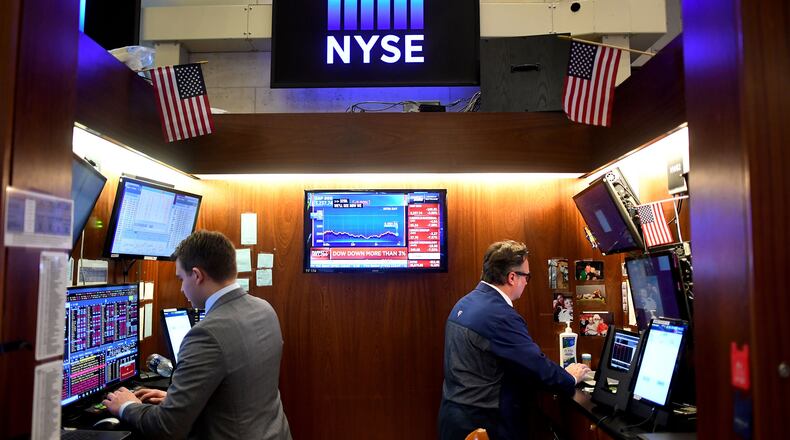“We are concerned. It’s the fastest correction that we’ve seen in 60 years, not that I’ve been around for 60 years,” said Daniel Kapusta, director of the University of Dayton Davis Center for Portfolio Management and a lecturer in finance.
MORE: Exclusive: Fuyao chair here to celebrate Oscar-winning film: 'Truly an American story'
What’s “unsettling” about this correction is that it seems to be driven by fear and emotion, not economic fundamentals, said William Wood, a certified financial planner with Adams Wealth Management Group in Centerville.
“That makes this more difficult to interpret and read,” Wood said.
A correction is a decline of at least 10 percent in market levels or a stock price.
Wood, also a finance lecturer at Wright State University, sees the current upheaval as a reaction to an issue that many investors “don’t understand.”
“We’re past the initial reaction to the productivity issues and the supply chain issues,” he said. “We’re now in more of a emotional reaction to this.”
Jeffrey Haymond, dean of Cedarville University’s School of Business Administration, agrees that stocks have sunk firmly into correction territory, but some stocks — especially those with exposure to international trade — will be more volatile than others.
MORE: Defense secretary agrees there no need to duplicate NASIC through Space Force
“People are asking, ‘Should I sell now?’ In a panic, it’s always the worst time to sell,” Haymond said. “I mean, unless you knew for sure it was going to much, much further down.”
He added: “The usual best advice for people in things like this: They need to be prudently having a diversified portfolio, they need to be working with their financial advisor.”
If anyone is readying to retire, those people should have already reduced exposure to volatile stocks, Haymond said.
Haymond and Wood agree that predicting what happens next is impossible. Markets are “correctly pricing in new information,” Haymond said, saying that whatever one thinks of markets, “They do a really good job of moving very quickly when new information gets on the scene, to adjust people’s expectations as what the future holds.”
Haymond’s own self-described “confident conjecture:” The Federal Reserve will start pumping money into the system, should markets continue to be strained.
“You could see them cut interest rates next week,” he said.
UD’s Kapusta recalled the SARS virus about 16 years ago. That virus’ impact on China’s gross domestic product the quarter after was roughly 2.3 percent. But today China has a much bigger share of the world’s productivity, he noted.
“Obviously it’s going to have a serious effect,” Kapusta said.
About the Author

